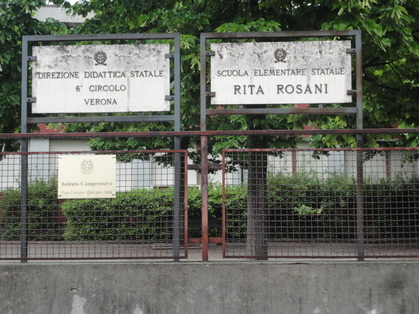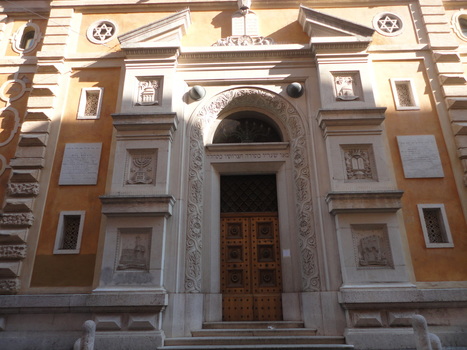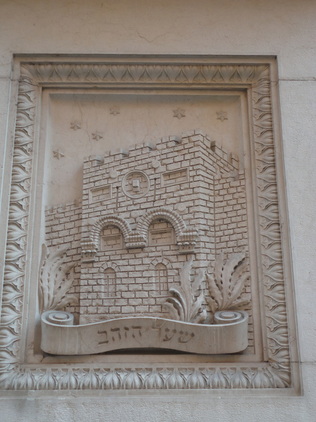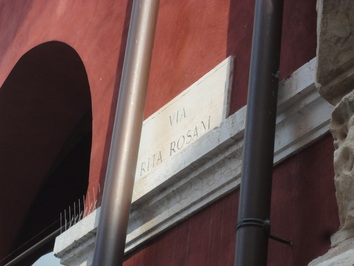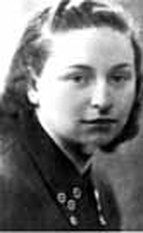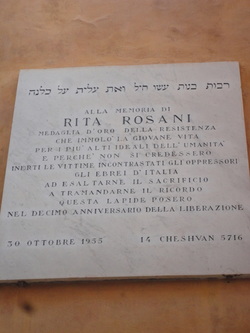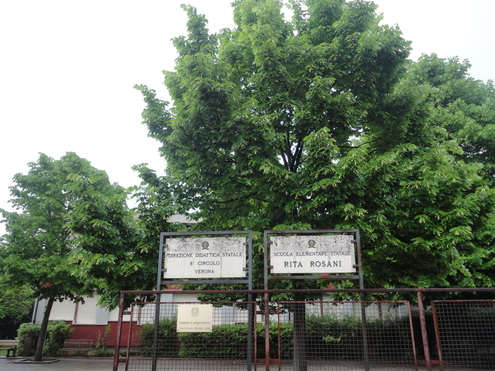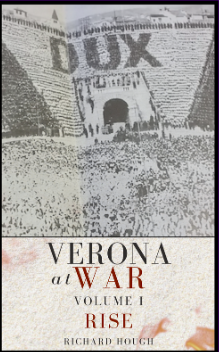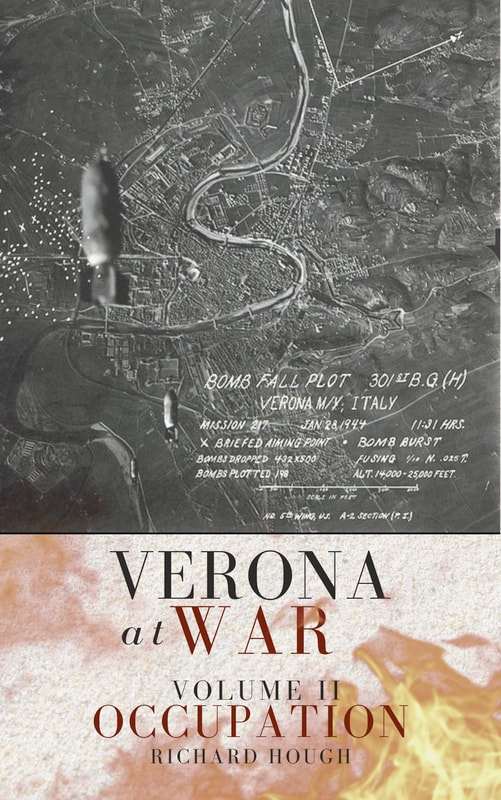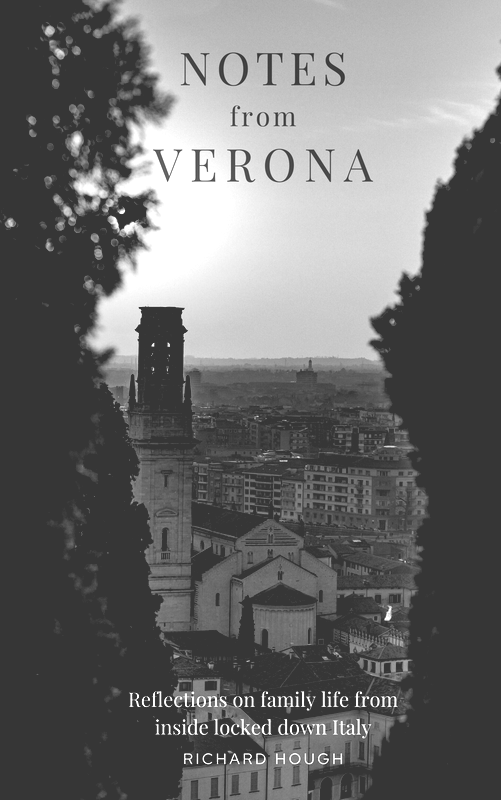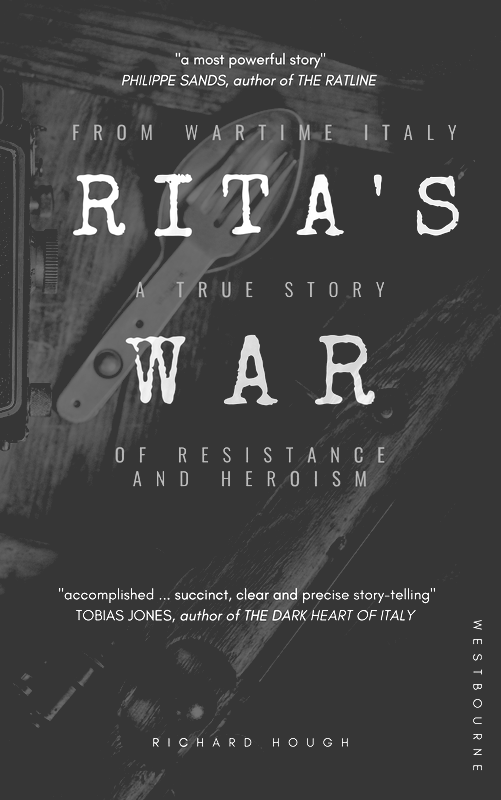|
First day at school
With the current academic year entering its final term, our thoughts are already turning to the next anno scolastico. After three joyful years at scuola materna, our son Leo will start primary school in September. Kids go to school a year later in Italy, so he'll be six when he starts Scuola Elementare Rita Rosani in September. As a diligent parent in a foreign land, this landmark event raises some important questions... How will my child cope at school? Will he make friends? And, above all, who is/was Rita Rosani?
Who was Rita Rosani?
Rita Rosani was born on 20 November 1920 in Trieste, an ancient frontier seaport on the Italian-Slovenian border. Her family were from Czechoslovakia. She was Jewish. After completing her studies, Rita went to teach at the Israelite elementary school of Trieste.
The Italian Jews
In 1933, the Italian Jewish community, one of the oldest in Europe, numbered about 50,000. At this time, there was relatively little overt anti-Semitism in Italy. Indeed, compared to Hitler's Germany, Italy was a late comer to such persecution, only embarking on a formal policy of anti-Semitism in 1938. In 1938, the fascist anti-Semitic laws came into force in Italy. Rita Rosani experienced first hand the bitter pain of anti-Semitic persecution. Although Mussolini and other Italian fascists clearly harboured anti-Semitic and racist attitudes, Mussolini's policy seems to have been driven as much by cynical opportunism and a desire to ingratiate himself with Hitler than it was by genuine anti-Jewish fanaticism. In July 1939, Mussolini published his Manifesto della razza, a blatantly anti-Semitic document. This was followed by laws forbidding the marriage of Italians with those of non-Aryan race and the expulsion of foreign Jews who had come to Italy after 1 January 1919. Furthermore, Italian Jews were forbidden from being teachers, lawyers, journalists or bankers and Jewish children were segregated in special schools. These policies were heavily shaped by Hitler's anti-Semitic ideology and, it must be said, weren't popular with many Italian citizens. As war broke out, fascist Italy found itself in a unholy alliance with Nazi Germany. After the armistice of September 1943, Italy, now under German occupation, plunged into a brutal civil war. Anti-Semitism reached its most extreme phase. In order to avoid deportation and the concentration camps, Rosani took refuge in a village in Friuli in northeastern Italy. Mussolini was certainly aware that Jews were being exterminated in Germany, but this didn't stop him from handing over Italian Jews to the Germans. It was only thanks to a combination of resistance and incompetence, that so many Italian Jews avoided the gas chambers. In all, the Nazis deported 8,564 Jews from Italy, Italian-occupied France, and the islands of Rhodes and Kos, most of them to Auschwitz-Birkenau. 1,009 returned. In addition, the Nazis shot 196 Jews in Italy, nearly half of these at the Ardeatine Cave in March 1944. Another 100 died in police transit camps or in prisons or police custody. More than 40,000 Jews survived the Holocaust in Italy, the third highest survival rate after Denmark and Bulgaria.
Italian resistance
In general, the Italian population did not approve of either the German alliance or Italian entry into the war. Following the armistice of 1943, thousands of Italian men and women took part in what became known as ‘The Resistance’. The partisans who made up the resistance were not a homogenous group, but instead were an assortment of various political factions who opposed Italian fascism and German occupation. The first partisans were disbanded soldiers who were soon joined by other young men who refused to enlist in the fascist army. Despite the harsh reprisals carried out by the Germans and the fascists for those involved in such activity, partisan groups gradually grew in strength and expertise. The brutal conflict they fought between 1943-45 became known as the Italian Civil War. Women played a very important role, not only as fighters, but also with assistance, support and exchange of information. The Resistance movement spread from the mountains to the lowlands and into the cities. At the end of the war, more than 185,000 were officially acknowledged as partisan fighters, 35,000 of whom were women. The Resistance movement in Italy suffered nearly 29,000 casualties, including 683 women (source: European Resistance Archive).
Rosani the partisan
Rita Rosani first engaged in clandestine anti-fascist activities in Portogruaro, a small town to the north of Venice. She then joined the partisan movement in the province of Verona, carrying out liaison and organisation of the nascent fighting formations. The young teacher was personally involved in the formation of a small band of partisans (the "Eagle" Brigade), fighting for months in Valpollicella and in the area of Zevio (south east of Verona). The Eagle Brigade spent a year in a hut that had become their base on Monte Comun, in the hills to the north of Verona.
Surrounded
One Sunday morning in September 1944, the outpost of the “Eagle” Brigade was surrounded by a large unit of fascists who had received an anonymous tip-off and were determined to capture, by any means necessary, the small group of partisans that included Rita Rosani. A bloody battle followed. The partisans resisted for hours. Finally they decided to launch a counter-attack. The men suggested to Rita that she flee while they create a diversion. Her response, "You must be joking!". Musket in hand, she threw herself into the battle. Wounded and captured, Rita was shot in the head by a Republican lieutenant who was subsequently sentenced to twenty years. He was soon released. After her death, Rosani was awarded the Gold Medal of Military Valour.
Back to school
In September 2014, when I drop Leo off for his first day at primary school, it will be his special day. But, I'll spare a thought for the young Jewish teacher who died fighting for "the highest ideals in humanity", and in whose memory his school is named. |
AboutRichard Hough writes about history, football, wine, whisky, culture + travel and is currently working on a trilogy about wartime Verona.
|
